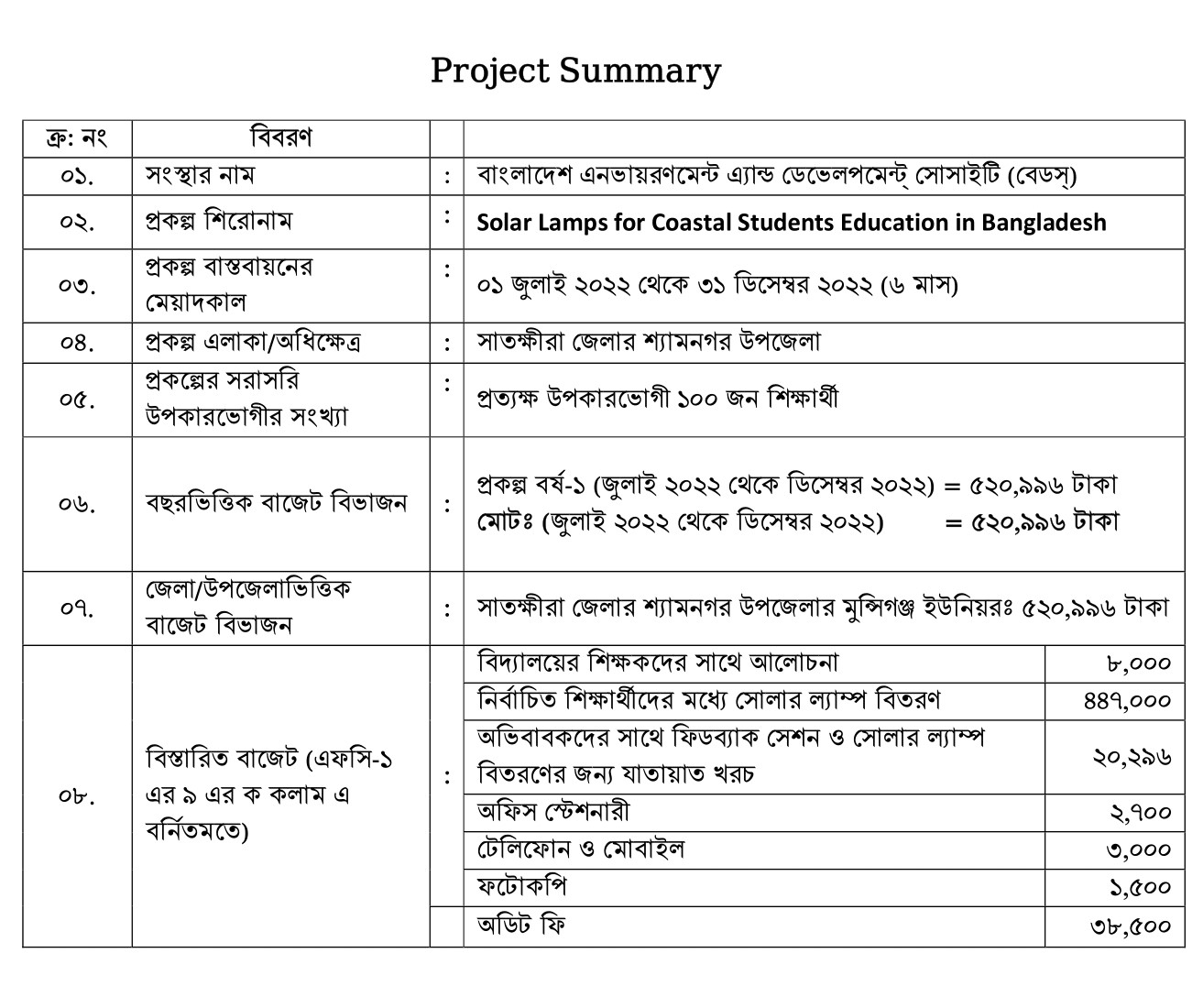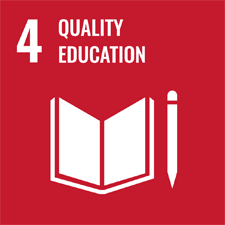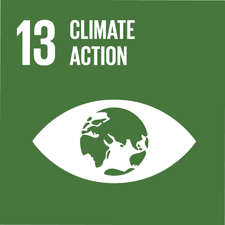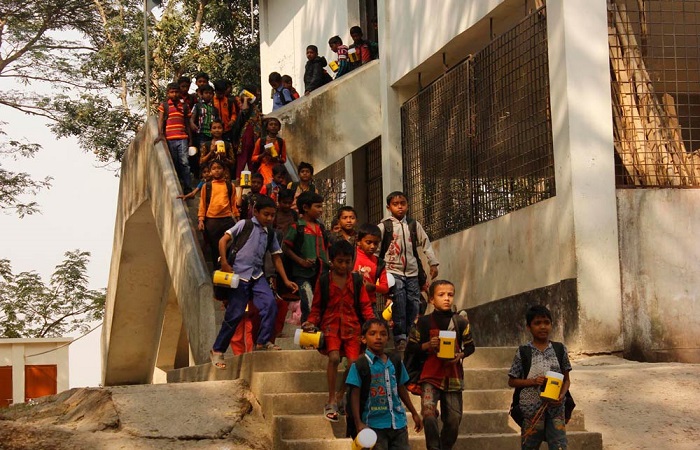Project Summary
Our proposed project site is in the southwest coastal part of Bangladesh near the Sundarbans mangrove forest. The Sundarbans is the UNESCO declared Natural World Heritage as well as RAMASAR Wetland site which is known as the largest single mangrove forest in the world. Sundarbans mangrove flagship ecosystem is the natural safeguard and livelihood support for 3.5 million climate vulnerable coastal people. The project sites are Mathurapur Jelley Polli and Mundapara, under Shyamnagar Sub-district, Satkhira, Bangladesh. Adjacent communities are highly dependent on mangrove ecosystem services to both support their livelihoods and protect them from the impacts of climate change. After decades of dependency on different energy resources, it is certain that the use of fossil energy increases Greenhouse Gas Emission, which accelerates global warming and causes climate change and suffers the country especially the coastal areas by natural calamities. The communities in this area are the worst sufferer of different natural calamities like river erosion, flood, cyclone, storm, erratic rainfall, inefficiency and lacking of fresh water etc. Majority of the villagers are farmers. A large number of villagers are dependent on the Sundarbans for their livelihood as the village is situated near the Sundarbans. The villagers struggle to obtain even their basic needs. Shortage of safe drinking water, lack of electricity, unimproved livelihood, food security & nutrition, health and sanitation, climate vulnerability (riverbank erosion, flood, cyclone, over rainfall, drought), forest resource dependency, unplanned agriculture, inappropriate natural resource management etc. are the main problems of the area. The socio-economic condition in these areas is very poor where the people are still struggling to obtain the basic needs like electricity. Villagers are enveloped in darkness after sunset causing women to use kerosene lamps or cook food only in the day light and students have to skip their education at night. But we can turn the coastal families from fully dependency on forest to other works if we can provide electricity to the many talented and hardworking students of these areas.
For solving this problem BEDS will provide 100 solar lamps to 100 students from the selected project areas. So that the families can turn their fates from forest resource harvesters to other jobs and can reduce the pressure on Sundarbans.
Overall goal of the project is to establish their profession from forest resource extraction to other jobs in the long term through providing alternative electricity facilities, solar lamps for education of students.







